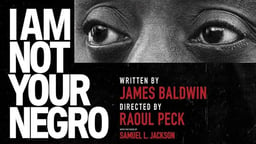
This page directs faculty and students to resources on African American Studies. Resources suggested on this guide are a small sample of what is available through the Skyline College Library and on the Web which, of course, is far from being exhaustive. Please use search strategies page to locate more resources, as well as Skyline College Library's Antiracism: A Resource Guide and Princeton University Library's African American Studies guide. Feel free to contact me, Pia Walawalkar, for more assistance at walawalkars@smccd.edu.
Adler, Jessica L. “‘The Service I Rendered Was Just as True’: African American Soldiers and Veterans as Activist Patients.” American Journal of Public Health (1971), vol. 107, no. 5, American Public Health Association, 2017, pp. 675–83, doi:10.2105/AJPH.2017.303688.
Ana Trujillo Limón. “Starting Thoughts: A Call to Rebuild Together.” Journal of Financial Planning, vol. 33, no. 7, Financial Planning Association, 2020, pp. 10–10.
Barbot, Oxiris. “George Floyd and Our Collective Moral Injury.” American Journal of Public Health (1971), vol. 110, no. 9, American Public Health Association, 2020, pp. 1253–1253, doi:10.2105/AJPH.2020.305850.
Barrie, Christopher. “Searching Racism after George Floyd.” Socius : Sociological Research for a Dynamic World, vol. 6, SAGE Publications, 2020, doi:10.1177/2378023120971507.
Bloomquist, Jennifer. “The Minstrel Legacy: African American English and the Historical Construction of ‘Black’ Identities in Entertainment.” Journal of African American Studies (New Brunswick, N.J.), vol. 19, no. 4, Springer, 2015, pp. 410–25, doi:10.1007/s12111-015-9313-1.
Dow, Dawn Marie. “The Deadly Challenges of Raising African American Boys: Navigating the Controlling Image of the “Thug.’” Gender & Society, vol. 30, no. 2, SAGE Publications, 2016, pp. 161–88, doi:10.1177/0891243216629928.
Durr, Damien, and Eric Brown. “Born Sinner, Fashioned Divine: The Criminalization, Commodity and Creativity of Young Black Males.” Black Theology : an International Journal, vol. 14, no. 1, Routledge, 2016, pp. 43–52, doi:10.1080/14769948.2015.1131501.
Fine, Michael. “George Floyd (October 14, 1973-May 25, 2020): Make Future Public Health Better Than the Past.” American Journal of Public Health (1971), vol. 111, no. 5, American Public Health Association, 2021, pp. 758–758, doi:10.2105/AJPH.2021.306239.
Hill, Leah Aileen. “Disrupting the Trajectory:: Representing Disabled African American Boys in a System Designed to Send Them to Prison.” The Fordham Urban Law Journal, vol. 45, no. 1, Fordham Urban Law Journal, 2017, p. 201–.
Kurtz-Costes, Beth, et al. “Parents' Racial Beliefs and Ethnic–Racial Socialization in African American Families.” Merrill-Palmer Quarterly, vol. 65, no. 1, Wayne State University Press, 2019, pp. 54–80.
Langberg, Jason, and Angela Ciolfi. “Busting the school-to-prison pipeline.” The Education Digest, vol. 82, no. 5, Prakken Publications, Inc, 2017, p. 42–.
Monk, Jr. “The Cost of Color: Skin Color, Discrimination, and Health Among African-Americans.” The American Journal of Sociology, vol. 121, no. 2, University of Chicago Press, 2015, pp. 396–444, doi:10.1086/682162.
Paul-Emile, Kimani. “Blackness as Disability?” The Georgetown Law Journal, vol. 106, no. 2, Georgetown University Law
Prickett, P. “Complexity Beyond Intersections: Race, Class, and Neighborhood Disadvantage among African American Muslims.” Social Inclusion, vol. 6, no. 2, Cogitatio, 2018, pp. 98–106, doi:10.17645/si.v6i2.1416.
Smith, Ashley. “BlackWomenMatter: Neo-Capital Punishment Ideology in the Wake of State Violence.” The Journal of Negro Education, vol. 85, no. 3, The Journal of Negro Education, 2016, pp. 261–73, doi:10.7709/jnegroeducation.85.3.0261.
Smolkowski, Keith, et al. “Vulnerable Decision Points for Disproportionate Office Discipline Referrals: Comparisons of Discipline for African American and White Elementary School Students.” Behavioral Disorders, vol. 41, no. 4, Sage Publications, Inc, 2016, pp. 178–95, doi:10.17988/bedi-41-04-178-195.1.
Tokeshi, Matthew. “Why Are African American Governors and U.S. Senators so Rare? Exploring White Voters’ Responses to African American Statewide Candidates.” Political Behavior, vol. 42, no. 1, 2020, pp. 285–304, doi:10.1007/s11109-018-9496-y.
Please also check out Film and Television page of Skyline College Library's Anti-Racism: A Resource Guide.











African American History (Open Yale) course licensed under CC BY-NC-SA 3.0
African American History: the Modern Freedom Struggle (Academic Earth) check terms of service.
African American History and Culture (FSCJ/Lumen) courseware includes resources copyrighted and openly licensed by multiple individuals and organizations. Click the words "Licenses and Attributions" at the bottom of each page for copyright and licensing information specific to the material on that page.
African American Studies (MIT Open Courseware) course licensed CC BY-NC-SA
African American Studies (UC Irvine Open) course licensed under CC BY-NC-SA 3.0
Black Activist Journal of the Black Left Unity Network
Black Diaspora Review Open Access journal published by From Indiana University, this journal provides "... a forum for the scholarly critiques; debates every aspect of Black Diaspora studies, including its mission, curricula, ideology and/or scholarly methodologies, linkages to other academic disciplines links to extra-academic communities, and its future."
Black Freedom Struggle in the United States: Challenges and Triumphs in the Pursuit of Equality A free website from Proquest that focuses on Black Freedom and features select primary source documents related to critical people and events in African American history.
Black Lives Matter Collective Storytelling Project Student reflections on race, racism and racial justice
Black Matters: Introduction to Black Studies ((MIT OpenCourseWare) course licensed CC BY-NC-SA
The Black Power Movement (OER Commons) course licensed under CC BY
The Crisis (from the Modernist Journals Project) Journal founded by W. E. B. Du Bois, covering years 1910-1922.
Ebony full text archive of this important African American news and culture magazine, 1950-2008
Great Works of African American Literature open textbook published under CC BY-NC-SA 4.0
Journal of African American Males in Education open access journal devoted to advancing scholarship and practice on African American males in education
Slavery to Liberation: The African American Experience (EKUOPEN: Open Textbooks) licensed under CC BY NC
The Underground Railroad from Slavery to Freedom (Project Gutenberg) "You may copy it, give it away or re-use it under the terms of the Project Gutenberg License included with this eBook or online at http://www.gutenberg.org/."
African American Experience: Primary Source Sets (Digital Public Library of America)
Primary source collections exploring topics in history, literature, and culture developed by educators — complete with teaching guides for class use.
The African-American Mosaic (Library of Congress)
A Library of Congress Resource Guide for the Study of Black History and Culture
Amistad Research Center (Tulane University)
The Amistad Research Center collects, preserves, and provides open access to original materials that reference the social and cultural importance of America's ethnic and racial history, the African Diaspora, human relations, and civil rights.
Black Abolitionist Archive (University of Detroit Mercy)
"The Black Abolitionist Digital Archive is a collection of over 800 speeches by antebellum blacks and approximately 1,000 editorials from the period. These important documents provide a portrait of black involvement in the anti-slavery movement; scans of these documents are provided as images and PDF files."
Black History in Oklahoma (Oklahoma Historical Society)
Oklahoma Historical Society collects, preserves, and shares the history and culture of all Oklahomans and provides resources that give context for the Black experience in Oklahoma.
BlackPast.org (Black Past nonprofit org)
"This reference center with 7,465 posts is dedicated to providing information to the general public on African American history and the history of more than one billion people of African ancestry around the world."
Black History (National Archives)
This is a Library of Congress resource guide for the study of black history and culture.
Black Women's Suffrage Archive (DPLA)
"The Black Women’s Suffrage Digital Collection is a collaborative project to provide digital access to materials documenting the roles and experiences of Black Women in the Women’s Suffrage Movement and, more broadly, women’s rights, voting rights, and civic activism between the 1850s and 1960. The materials in this collection include photographs, correspondence, speeches, event programs, publications, oral histories, and other artifacts."
Civil Rights History Project (Library of Congress)
"The Civil Rights History Project began with a nationwide survey of oral history collections and culminated in a broad series of oral history interviews with civil rights movement veterans from coast to coast. It contains more than 1200 items consisting of born-digital video files, digitized videocassettes, digital photographs and full-text transcripts for all interviews. The interviews are also accessible through the Library's YouTube site and the NMAAHC website"
Digital Harlem (University of Sydney)
"The Digital Harlem website presents information, drawn from legal records, newspapers and other archival and published sources, about everyday life in New York City's Harlem neighborhood in the years 1915-1930. Most of the material relates to the years 1920, 1925, and 1930."
Digital Library on American Slavery (University of North Carolina Greensboro)
"The Digital Library on American Slavery is an expanding resource compiling various independent online collections focused upon race and slavery in the American South, made searchable through a single, simple interface.
Although the current focus of DLAS is sources associated with North Carolina, there is considerable data contained herein relating to all 15 slave states and Washington, D.C., including detailed personal information about slaves, slaveholders, and free people of color."
Digital Schomburg (New York Public Library)
"Relying on the expertise of distinguished curators and scholars, Digital Schomburg provides access to trusted information, interpretation, and scholarship on the global black experience 24/7. Users worldwide can find, in this virtual Schomburg Center, exhibitions, books, articles, photographs, prints, audio and video streams, and selected external links for research in the history and cultures of the peoples of Africa and the African Diaspora."
F. B. Eyes Digital Archive (Washington University in St. Louis)
"The F.B. Eyes Digital Archive makes available for the first time a collection of 51 FBI files on prominent African American authors and literary institutions, many of them unearthed through William J. Maxwell's Freedom of Information Act (FOIA) requests. Now part of the public domain as unrestricted U.S. government documents, these once-secret files are arranged on this site as they were at FBI national headquarters, under the names of individual authors and institutions."
Frederick Douglass Papers (Library of Congress)
"The Frederick Douglass Papers at the Library of Congress presents the papers of the nineteenth-century African American abolitionist who escaped from slavery and then risked his freedom by becoming an outspoken antislavery lecturer, writer, and publisher. The online collection, containing approximately 7,400 items (38,000 images), spans the years 1841-1964, with the bulk of the material dating from 1862 to 1865. Many of Douglass’s earlier writings were destroyed when his house in Rochester, New York, burned in 1872."
Golden Chains: A Hidden History of Slavery in California
An initiative by the ACLU of Northern California, this project uncovers California's overlooked history of slavery and its enduring impact. It features narratives, archival materials, and resources exploring the state's role in enslaving African Americans and exploiting Native peoples during the Gold Rush era.
Internet African History Sourcebook (Fordham University)
"Historical sources on the history of human societies in the continent of Africa are presented, when available, without making prejudgements about what is 'African'"
National Museum of African American History & Culture (Smithsonian)
"The National Museum of African American History and Culture is the only national museum devoted exclusively to the documentation of African American life, history, and culture. It was established by Act of Congress in 2003, following decades of efforts to promote and highlight the contributions of African Americans. To date, the Museum has collected more than 36,000 artifacts and nearly 100,000 individuals have become members. The Museum opened to the public on September 24, 2016, as the 19th and newest museum of the Smithsonian Institution."
Transatlantic Slave Trade Database (Slave Voyages Consortium)
The Trans-Atlantic Slave Trade Database comprises nearly 35,000 individual slaving expeditions between 1514 and 1866. Records of the voyages have been found in archives and libraries throughout the Atlantic world. They provide information about vessels, enslaved peoples, slave traders and owners, and trading routes. A variable (Source) cites the records for each voyage in the database. Other variables enable users to search for information about a particular voyage or group of voyages. The website provides full interactive capability to analyze the data and report results in the form of statistical tables, graphs, maps, or on a timeline.